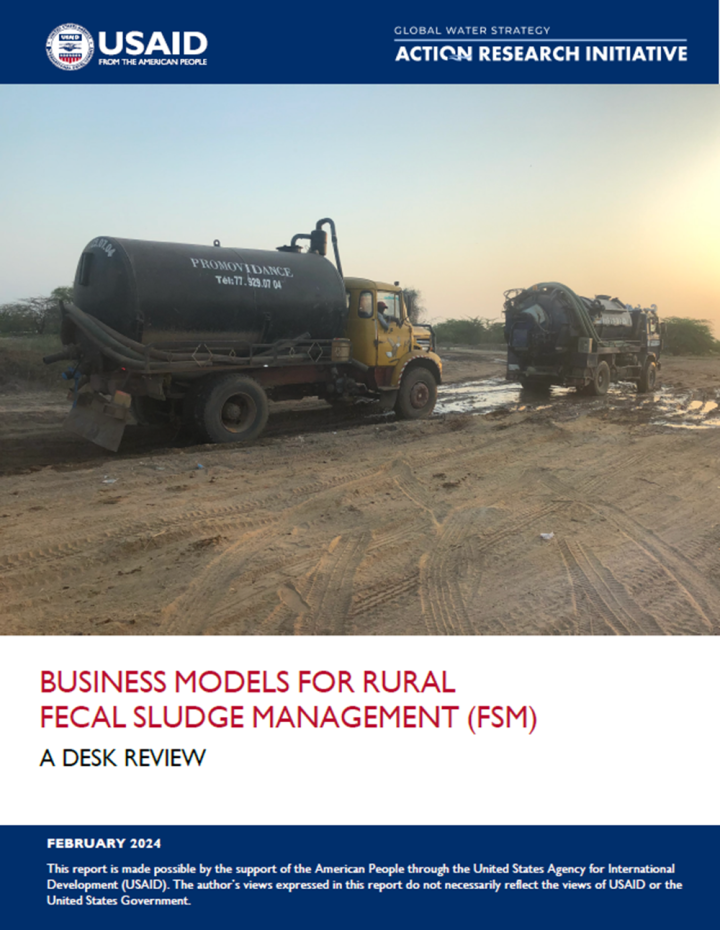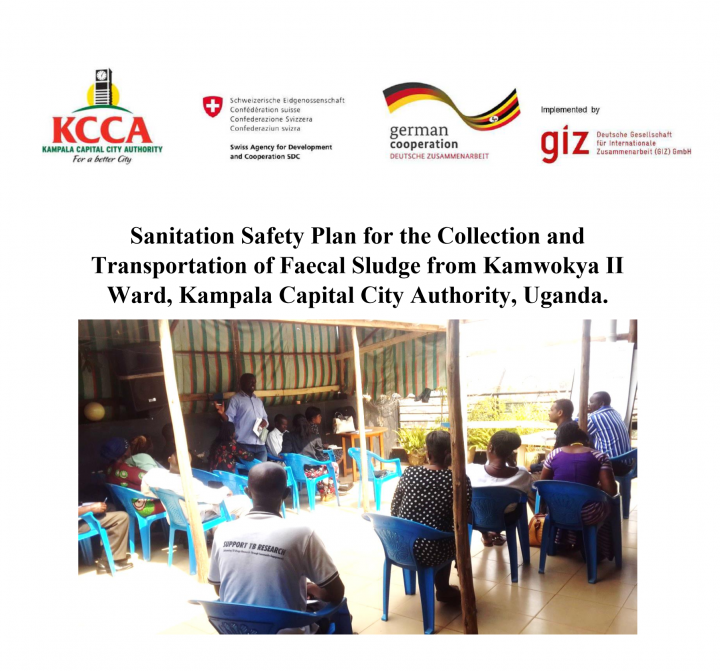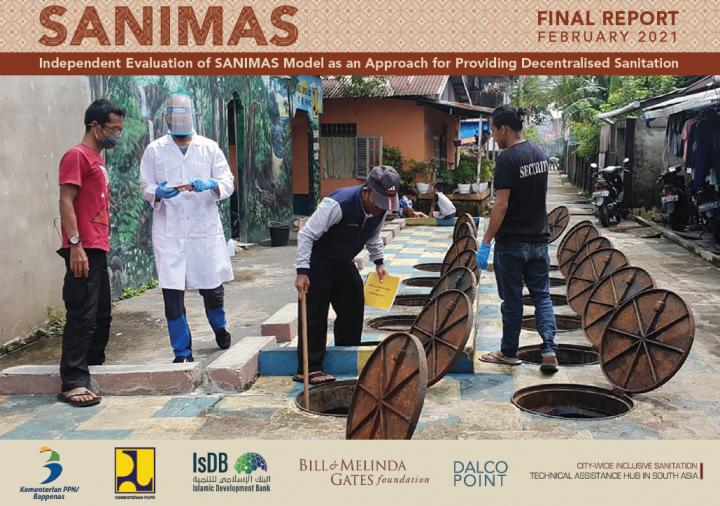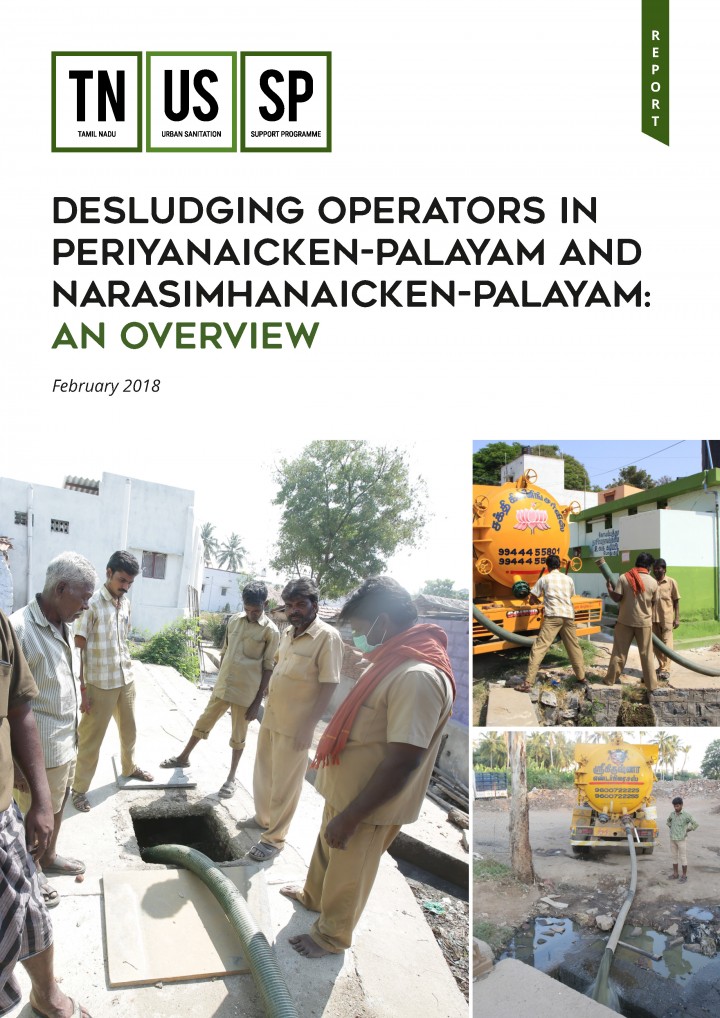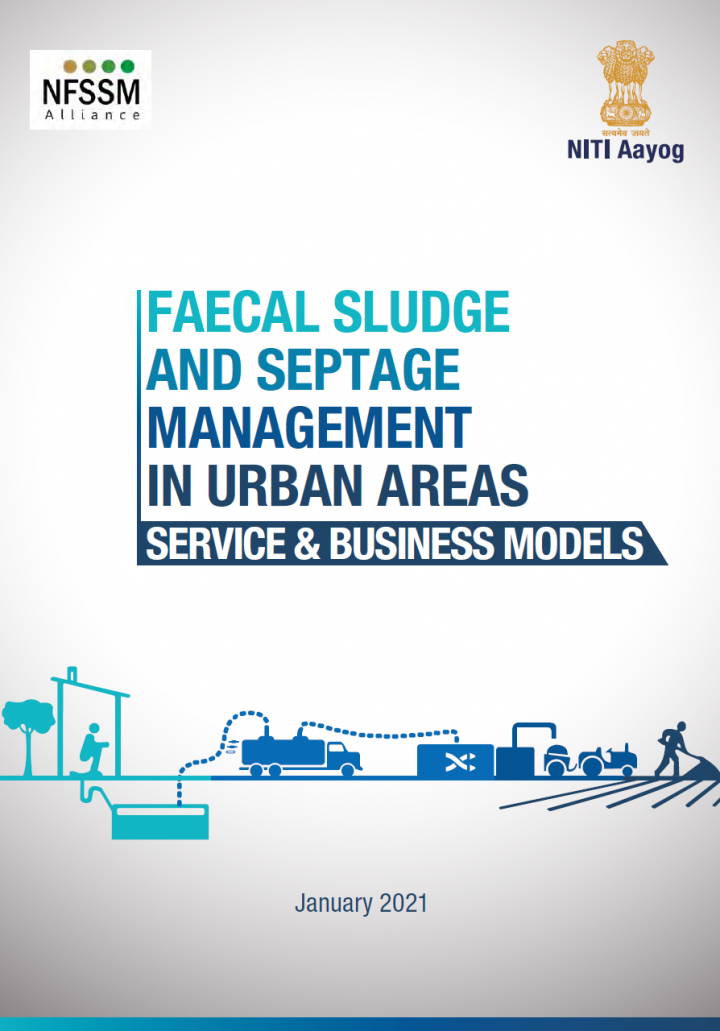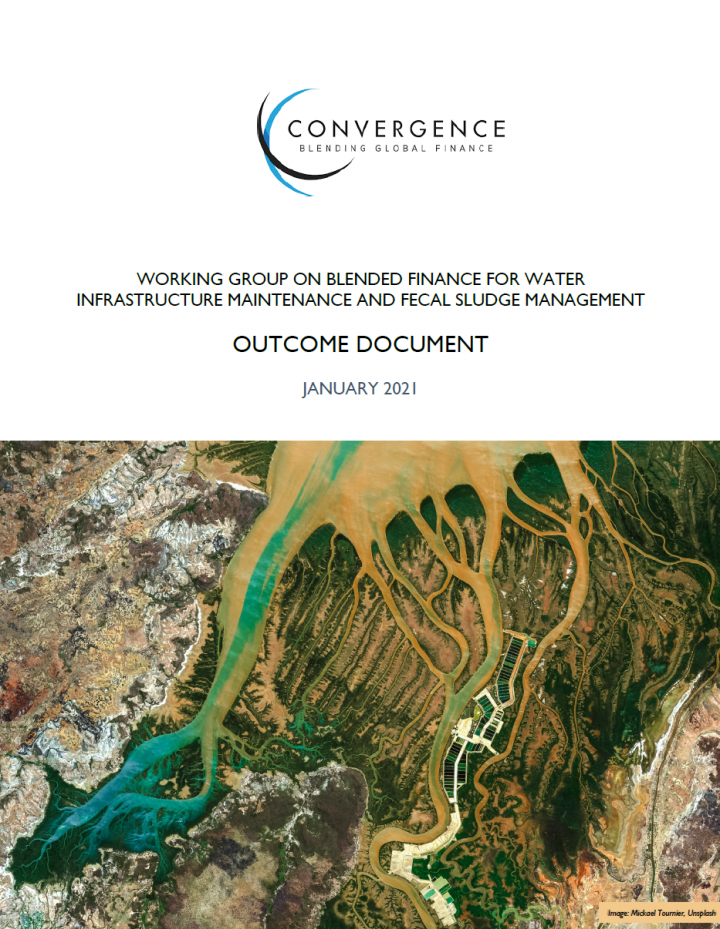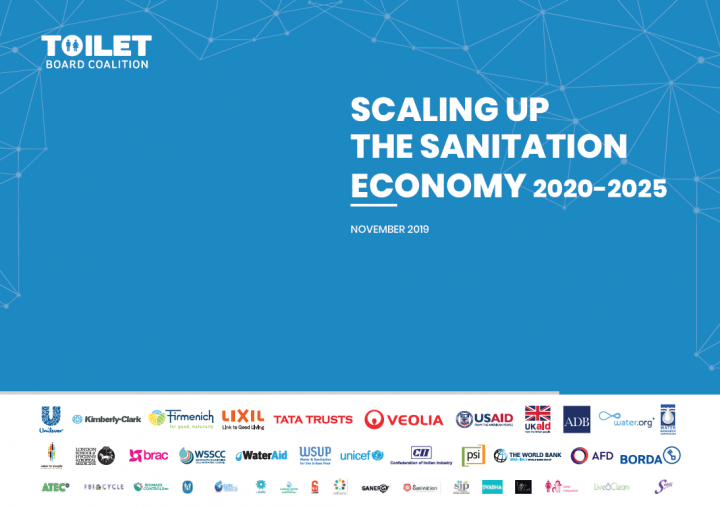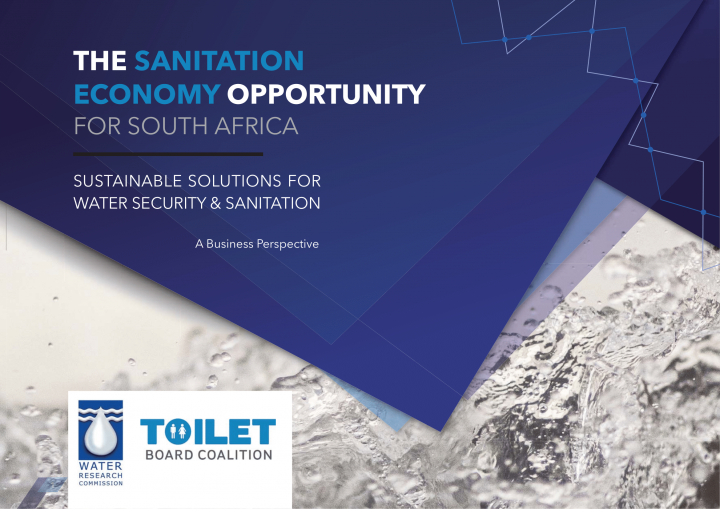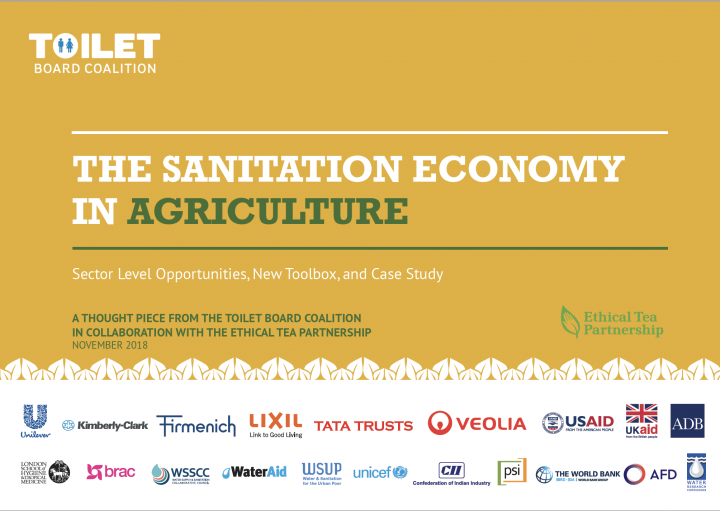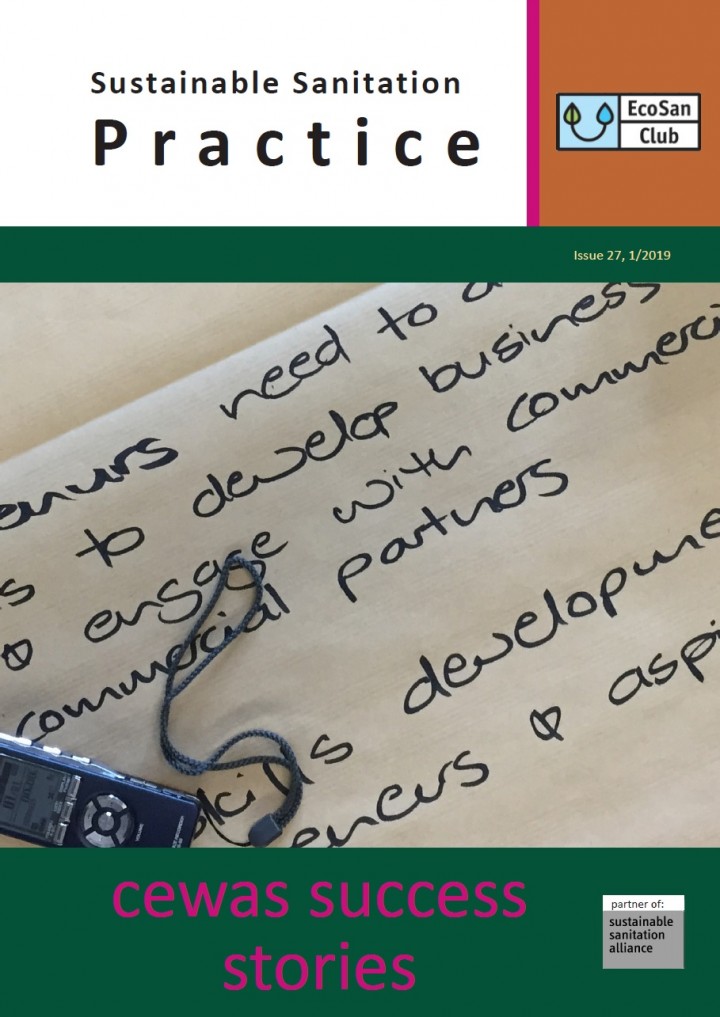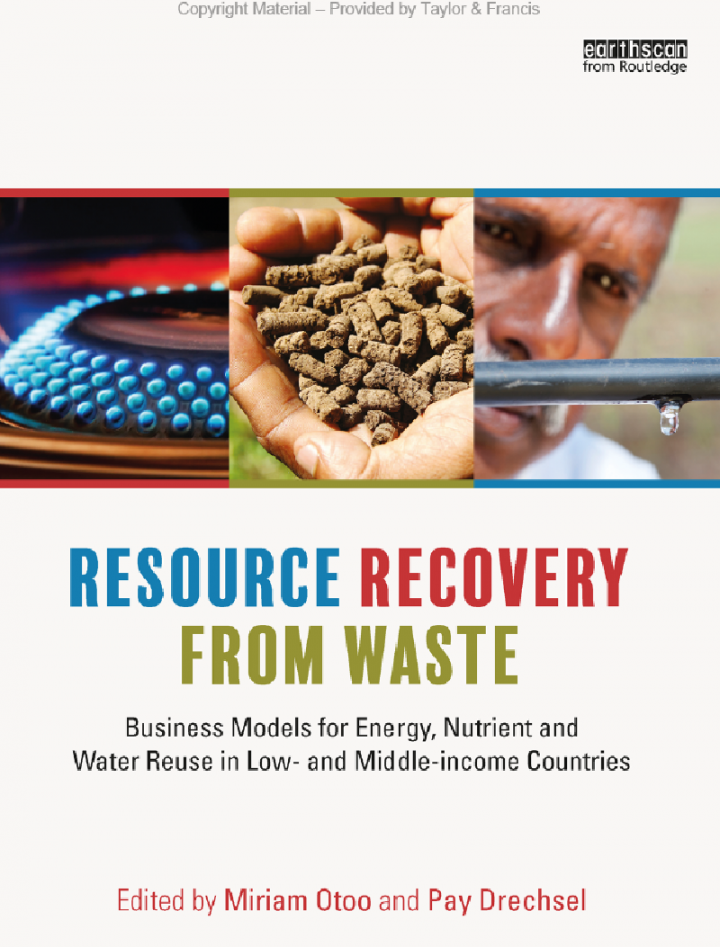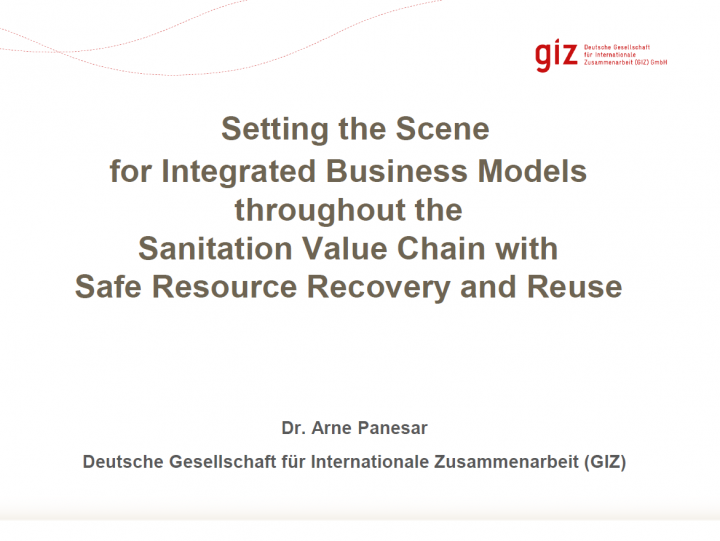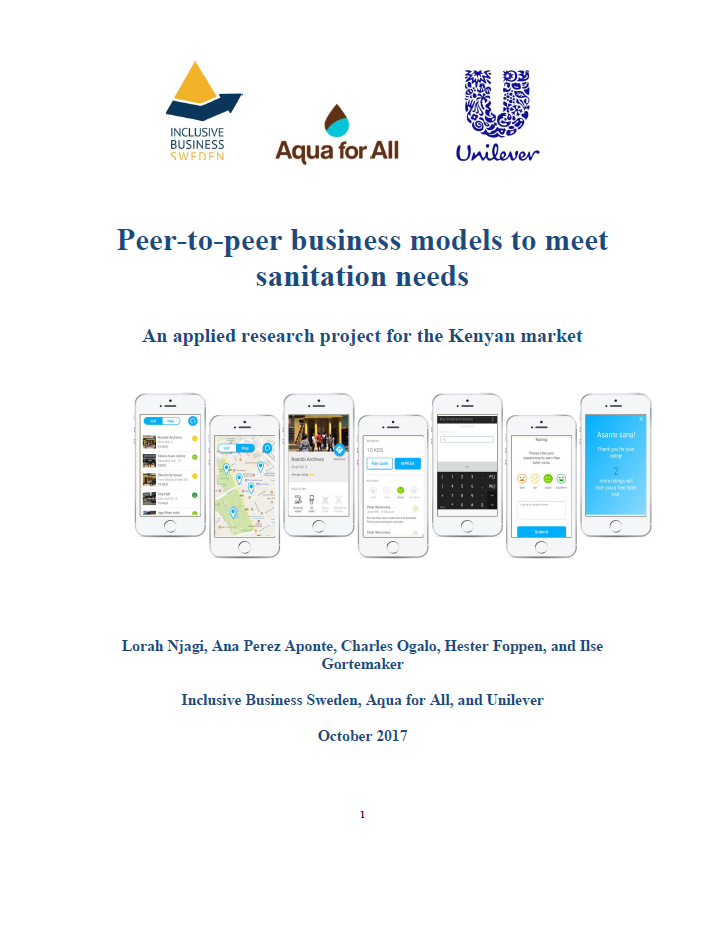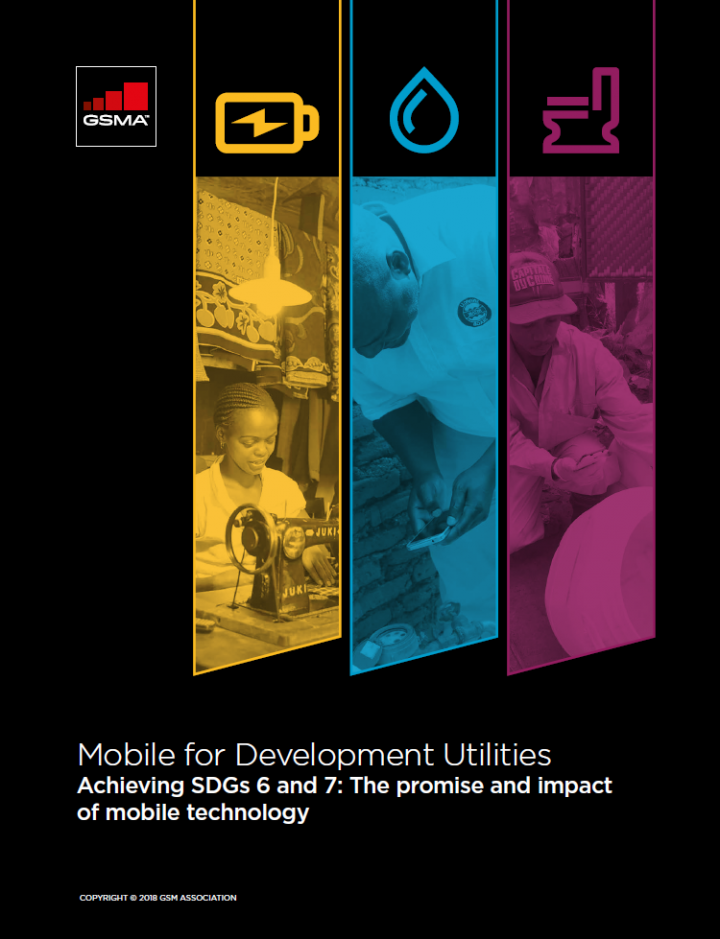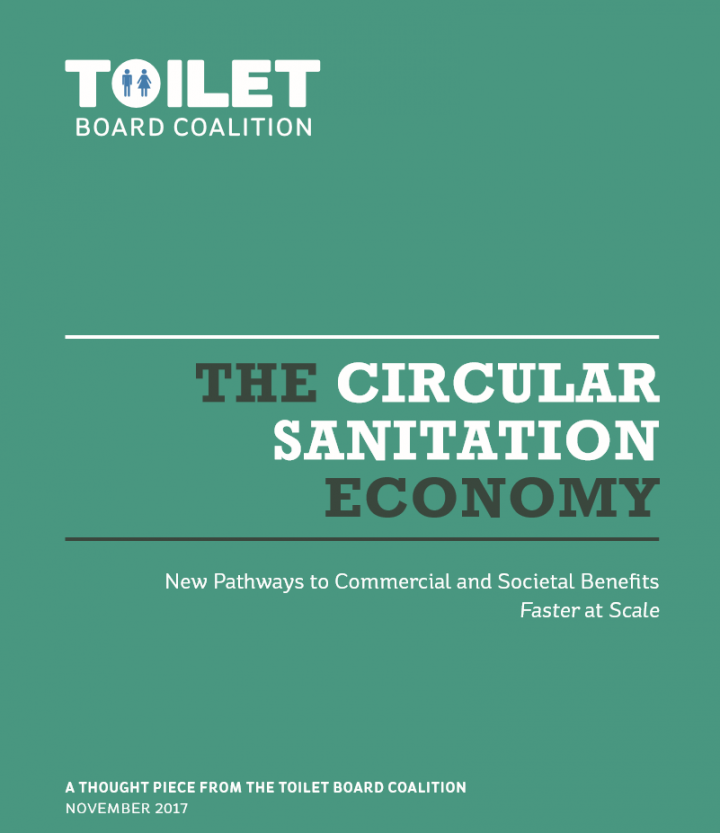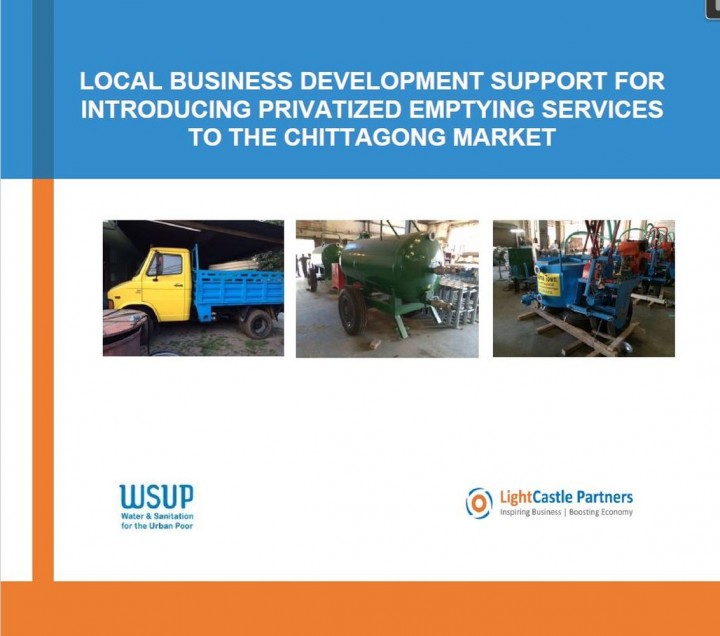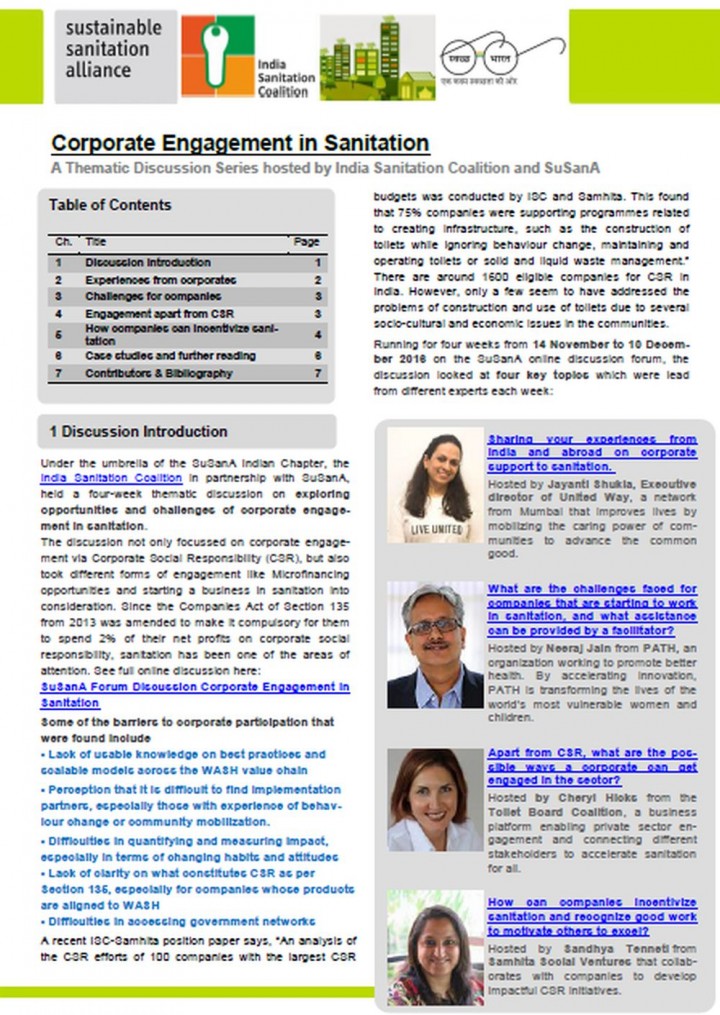Rishi Agarwal, Subhash Chennuri (2024) Business Models for Rural Fecal Sludge Management (FSM)
Over the last decade, basic sanitation coverage in rural areas of low- and middle-income countries has progressed significantly, especially in Asia. Sustaining those resulting gains in human, environmental, and community health, all while progressing toward targets of Sustainable Development Goal 6, requires safely managing the fecal sludge generated in on-site sanitation systems. When latrines are full, some households abandon them and build anew, while others choose […]
Al-Karablieh, Lauri Badi, Maha Halasheh, Ahmad Sobh, Ismail Al Baz, Rania Al’ Zoubi, Hesham Asalamat, Keith Burwell, Jens Götzenberger, Frank Pogade, Gerhard Rappold (2019) Decentralized Wastewater Management in Jordan
The Compendium is available in English and Arabic. It covers the following topics: (A) Decentralized Wastewater Management in the light of Adaptation to Climate Change (B) Domestic Wastewater Reuse in the Context of Decentralized Wastewater Management in Jordan for Climate Change Adaptation (C) Business Models for Decentralized Wastewater Management in Jordan (D) Social acceptance as a priority for sustainable decentralized wastewater systems (E) Orientation Guidelines developed based on the Experiences […]
Abdullah Ali Halage (0) Sanitation Safety Plan for the Collection and Transportation of Faecal Sludge from Kamwokya II Ward, Kampala Capital City Authority, Uganda.
Sanitation issues are some of the most significant development challenges for Kampala City, Uganda. Like many other capital cities in developing countries, Kampala is experiencing rapid population and economic growth. However, provision of key services including adequate sanitation for the city population has not been in tandem with these developments. Kampala Capital City Authority (KCCA) with support from the Deutsche Gesellschaft fur Internationale Zusammenarbeit GmbH […]
Bulson, P., Muslimah, S., Reynaud, N., Blackett, I., Campbell, A. V., Arsyini, I. (2021) Independent Evaluation of SANIMAS Model as an Approach for Providing Decentralised Sanitation
According to RPJMN 2020–20241 figures, in 2018 almost 75 percent of the Indonesian population has access to improved sanitation nationally. This includes almost 7.5 percent classified as safely managed sanitation services based on Sustainable Development Goals (SDGs) 2030 definitions. These figures are impressive considering the low base of sanitation coverage with which the country has been evolving from. The Indonesian government, IsDB, Bill & Melinda Gates […]
TNUSSP (2018) Desludging Operators in Periyanaicken-Palayam and Narasimhanaicken-Palayam: An Overview
Safe collection and safe disposal of fecal sludge is a critical component of septage management in which desludging operators play a central role. In order to understand their work, consultations were conducted with desludging operators in the Periyanaicken Palayam and Narasimhanaicken Palayam town panchayats of Coimbatore district. These consultations aimed to understand the current desludging practices, the different kinds of business models and the overall […]
NFSSM Alliance & Niti Aayog (2021) Faecal Sludge and Septage Management inUrban Areas Service & Business Models
The Faecal Sludge and Septage Management: Service Business Models shares leading practices and innovations to improve how faecal sludge is managed, and how to expand services to the millions of people living in thousands of cities in urban India, lacking access to safely managed sanitation.
Convergence © (2021) Working Group on Blended Finance For Water Infrastructure Maintenance And Fecal Sludge Management Outcome Document
Over the course of three months, a Working Group comprised of over 50 organizations explored the use of blended finance in two important segments of water service delivery and sanitation: (1) repair and maintenance of water infrastructure in less densely populated areas; and (2) fecal sludge management. Commissioned by the Swedish International Development Cooperation Agency (Sida), this Outcome Document highlights the Working Group's recommendations. Currently, there […]
Toilet Board Coalition (2019) Scaling up the sanitation economy 2020-2025
Leading businesses are engaged in efforts to reimagine sanitation systems as a net contributor of resources and data while addressing critical human rights. More importantly these leaders are driving their companies to go beyond risk and compliance to bring transformative positive change to millions of people affected by their business operations. Global companies employ several millions of people. By proactively applying Sanitation Economy approaches companies have […]
Various authors (2019) FSM5 - 5th International Faecal Sludge Management Conference Materials
Presentations (download from conference website, see external link below, or go to: https://fsm5.susana.org/en/downloads/conference-materials): Conference convenors: Bill & Melinda Gates Foundation BORDA Eawag-Sandec Deutsche Gesellschaft für Internationale Zusammenarbeit (GIZ) GmbH Inclusive Sanitation in Practice (IPS) Sustainable Sanitation Alliance (SuSanA) University of KwaZulu-Natal University of Technology Sydney Water Research Commission (WRC) DAY 1, OPENING PLENARY 1. BAWA, K., “The Ngor Declaration on Sanitation and Hygiene” 2. NAIDOO, D., “Building the World’s First Sanitation Unicorn” **DAY 1, TRACK 1: RESEARCH […]
Akinsete, A., Bhagwan, J., Hicks, C., Knezovich, A., Naidoo, D., Naidoo, V., Pillay,S. (2019) The Sanitation Economy Opportunity for South Africa Sustainable Solutions for Water Security & Sanitation - A Business Perspective
The Water Research Commission and the Toilet Board Coalition have come together to identify the business opportunities in the Sanitation Economy specific to Africa. Our sanitation challenge in South Africa is a continuous one. Dealing with the inequities of the past, coupled with a dichotomy in society through apartheid spatial planning and the new perils of nature in the form of climate change puts a huge pressure on how we […]
TBC (2018) The Sanitation Economy In Agriculture A Guide For Business
In the tea sector in Assam, India, the Toilet Board Coalition (TBC), together with the Ethical Tea Partnership (ETP), have been assessing Circular Sanitation Economy approaches for plantations, with new technologies, business models and infrastructure. This report outlines initial findings from our work with the tea sector in 2018, building a compelling economic case for Circular Sanitation Economy approaches in agriculture.
Various Authors (2019) Resource Recovery & Safe Reuse (RRR) and Public-Private Partnerships (PPP) for Faecal Sludge Management (FSM)
On 20. February 2019 a side-event and lunch-meeting on Resource Recovery & Safe Reuse (RRR) and Public-Private Partnerships (PPP) for Faecal Sludge Management (FSM) took place during the 5th AfricaSan Regional Conference on Sanitation and Hygiene (AfricaSan5) and 5th International Faecal Sludge Management (FSM5) Conference in Cape Town, South Africa. The events were organised as part of the RRR-Project - Phase III (2017 - 2019), […]
Langergraber, G., Lechner, M. (2019) Sustainable Sanitation Practice cewas Success Stories
Articles in this issue: - Building Viable Business Models for Small and Medium-sized Enterprises; Louise Carpentier and Martin Wafler - Eco Solutions Forge; Bogdan Popov - SR3 INVENT sustainable projects and businesses in Ecuador; Stefan Breitenmoser - SOIL - Building a Sustainable Citywide Sanitation Service; Natalie Miller and Leah Page Jean - Youth-Led Sustainable Sanitation in the MENA region; Kareem Hassan - The Urinal […]
Otoo, M., Drechsel, P . (eds.) (2018) Resource Recovery from Waste Business Models for Energy, Nutrient and Water Reuse in Low- and Middle-income Countries
Humans generate millions of tons of waste every day. This waste is rich in water, nutrients, energy and organic compounds. Yet, waste is not being managed in a way that permits us to derive value from its reuse, while millions of farmers struggle with depleted soils and lack of water. This book shows how Resource Recovery and Reuse (RRR) could create livelihoods, enhance food security, […]
Various Authors (2014) Integrated Business Models throughout the Sanitation Value Chain with Safe Resource Recovery and Reuse Conference materials
The Integrated Business Models throughout the Sanitation Value Chain with Safe Resource Recovery and Reuse seminar combined the highlights of research on over 60 successful business cases and extracted business models for resource recovery and reuse in developing countries with a discussion on their applicability in a range of settings with practitioners and entrepreneurs. The Sanitation Safety Planning Manual was also presented to illustrate […]
Njagi, L., Aponte, A.P., Ogalo, C., Foppen, H., and Gortemaker, I. (2017) Peer-to-peer business models to meet sanitation needs An applied research project for the Kenyan market
Uber, the world’s largest taxi company, owns no vehicles. Airbnb, the world’s largest accommodation provider, owns no real estate. Peer-to-peer (P2P) business models such as these have achieved scale globally, and relatively quickly. These P2P business models provide an organised way for us to collectively share certain resources. Could similar solutions reduce the barriers to sharing of the limited existing sanitation facilities in low income […]
GSMA (2018) Mobile for Development Utilities Achieving SDGs 6 and 7: The promise and impact of mobile technology
The GSMA Mobile for Development Utilities programme was launched in 2012, with the support of the UK Government, to promote the role of mobile technology in increasing and improving access to basic utility services in underserved communities. This annual report shares our progress over the last 18 months and highlights key insights and trends in the mobile-enabled utility space. The evidence is based on our […]
Toilet Board Coalition (2017) The circular sanitation economy: New Pathways to Commercial and Societal Benefits Faster at Scale
The TBC is enabling private sector engagement; connecting large and small companies; and ensuring close collaboration between private, public and non-profit sectors with the common goal to achieve Sustainable Development Goal 6 (SDG6), universal access to sanitation. Objectives: To demonstrate the commercial viability of the Circular Sanitation Economy, by backcasting from the future, to envisage the new business models operating at city scale, and to explore […]
WSUP / Light Castle Partners (2016) Local Business Development Support for Introducing Privatized Emptying Services to the Chittagong Market
WSUP’s (Water and Sanitation for the Urban Poor) project of “introducing privatized emptying services in Chittagong” is a scale-up of their previous project of public-private partnership for septic tank emptying services that began operations in Dhaka almost a year ago. The scale-up in Chittagong is targeting the procurement and implementation of two exhausting trucks via a sustainable business model. The current study is targeted at […]
Jacob, N., von Falkenhausen, A., Bauer, M. (2017) Corporate Engagement in Sanitation Synthesis Document - SuSanA Indian Chapter online discussion
Under the umbrella of the SuSanA Indian Chapter, the India Sanitation Coalition in partnership with SuSanA, held a four-week thematic discussion on exploring opportunities and challenges of corporate engagement in sanitation. This synthesis is a summary of all topics discussed in the forum about corporate engagement. The discussion not only focussed on corporate engage-ment via Corporate Social Responsibility (CSR), but also took different forms of […]
